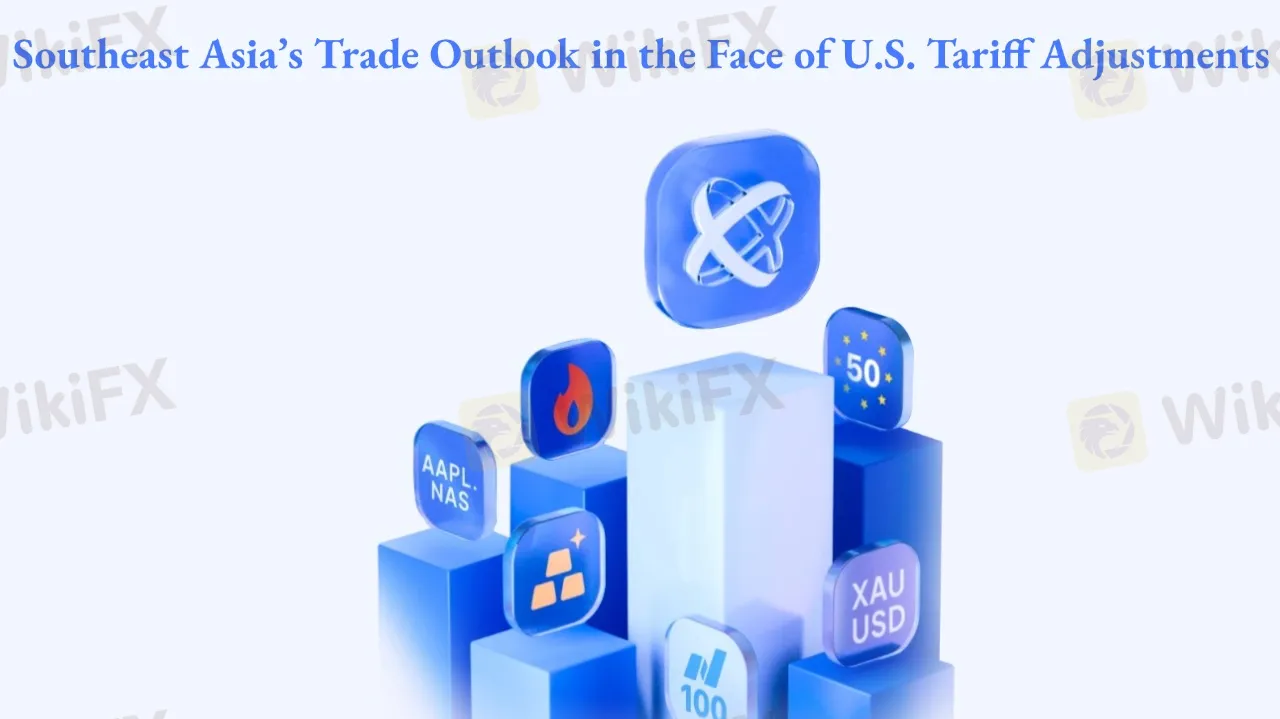ASIC Review Leads to Millions in Refunds After Widespread CFD Rule Breaches
After detecting major compliance failures, ASIC secures refunds for thousands of CFD traders and forces changes across the brokerage industry.
简体中文
繁體中文
English
Pусский
日本語
ภาษาไทย
Tiếng Việt
Bahasa Indonesia
Español
हिन्दी
Filippiiniläinen
Français
Deutsch
Português
Türkçe
한국어
العربية
Abstract:As the U.S. adjusts its tariff policies, Southeast Asian nations are facing a critical moment in trade negotiations, with the region’s economy potentially on the brink of new opportunities.

Octa is a global financial trading platform established in 2011 and headquartered in Seychelles. The company is dedicated to providing global investors with efficient, transparent, and commission-free trading experiences. With its innovative technology platform and customer-centric service philosophy, Octa has successfully attracted investors from over 180 countries and regions. To date, Octa has helped launch over 52 million trading accounts worldwide, making it one of the most influential brokers in the financial industry.
Octa offers a wide range of financial services, including forex, CFDs, commodities, and stocks. To meet the needs of investors at different levels, Octa provides extensive educational resources and professional tools, including real-time market analysis, technical charts, trading strategies, and regular webinars. These resources help investors better understand market trends and optimize their trading strategies.
Octa recently released an analysis report on how Southeast Asian countries are responding to the U.S. tariff adjustments. The report outlines how, in the context of the temporary slowdown of U.S. tariff enforcement, Southeast Asian nations are seeking to renegotiate trade agreements to pursue more favorable economic development opportunities. While some countries are heavily dependent on trade with the U.S., they are actively working to reduce tariff barriers and promote more flexible trade arrangements.
The report highlights how Southeast Asian nations are responding to the U.S. tariff policy changes. For instance, countries like Vietnam and Thailand are facing significant tariff pressures but are not passively accepting them. Instead, they are strengthening cooperation with the U.S. to secure better trade terms. As an important manufacturing hub, Vietnams exports focus on high-tech products and consumer goods. If its trade agreement with the U.S. fails, it could face tariffs as high as 46%. This poses a major threat to export-dependent companies, especially multinational corporations like Apple and Samsung, which have manufacturing bases in Vietnam.
Thailand plans to reduce its trade deficit with the U.S. by increasing imports of U.S. agricultural and energy products. While Thailand's total trade volume with the U.S. is relatively small, its performance in trade negotiations shows great potential. Malaysia is also optimistic, stating that it aims to reach an agreement with the U.S. within 90 days to avoid a 24% tariff.
While the situation seems to be moving in a favorable direction, investors must remain cautious of potential risks. With the U.S. adjusting tariffs on some Southeast Asian countries, market sentiment has fluctuated. Even though tariffs have been reduced, trade negotiations remain highly uncertain. Specifically, if the U.S. economy experiences fluctuations or the Federal Reserve fails to cut interest rates as expected, it could lead to a market reversal.
Moreover, Southeast Asian countries face other challenges when adjusting trade policies. For instance, they need to balance domestic demand with export demand and avoid over-relying on any single market, which could expose them to limitations. These considerations must be taken into account by investors when making decisions.
Tariffs refer to the taxes imposed by a country on imported goods, usually as a means to protect its domestic economy and local industries from external competition. By imposing tariffs, governments can raise the price of imported goods, reducing the impact of foreign products on the domestic market, and thus giving local producers a more competitive advantage. As a trade barrier, tariffs are often used to adjust international trade balances and protect domestic industries. Different countries develop and adjust tariff policies based on their economic conditions, industrial needs, political objectives, and changes in external markets.
In international trade, tariffs are closely related to trade agreements. Trade agreements are formal agreements between countries aimed at promoting mutually beneficial trade and improving economic relations. These agreements not only involve tariff adjustments but also include provisions on the quantity of imports and exports, product standards, market access, and other factors. Through trade agreements, participating countries can reduce or eliminate tariff barriers, facilitating the free movement of goods, services, and capital. Common types of trade agreements include Free Trade Agreements (FTAs), Customs Unions, and global multilateral agreements such as those under the World Trade Organization (WTO) framework.
In today's globalized world, tariff policies have a profound impact on national economies. Many countries rely heavily on imported goods, especially for resource-based and high-tech products. Changes in tariffs can directly affect the market prices of imported goods, the stability of supply chains, and investors' decisions. For example, if a major market raises tariffs, it could lead to higher prices for imported goods, increasing business costs, and affecting consumer purchasing decisions and corporate profitability. On the other hand, lower tariffs can promote trade flows, increase market competitiveness, and boost domestic economic development.
For more information on brokers, feel free to visit our official website (https://www.WikiFX.com/en) or download the WikiFX App to help you find the most trustworthy broker and ensure your trading experience is safer and more reliable.

Disclaimer:
The views in this article only represent the author's personal views, and do not constitute investment advice on this platform. This platform does not guarantee the accuracy, completeness and timeliness of the information in the article, and will not be liable for any loss caused by the use of or reliance on the information in the article.

After detecting major compliance failures, ASIC secures refunds for thousands of CFD traders and forces changes across the brokerage industry.

The Australian Dollar (AUD) advanced against the US Dollar on Thursday after stronger-than-expected employment data reinforced expectations that the Reserve Bank of Australia (RBA) may maintain a tighter monetary policy stance for longer. Meanwhile, the US Dollar remained steady as easing trade tensions offset reduced expectations for near-term Federal Reserve rate cuts.

WikiFX has launched the “Inside the Elite” Interview Series, featuring outstanding members of the newly formed Elite Committee. During the committee’s first offline gathering in Dubai, we conducted exclusive interviews and gained deeper insights into regional market dynamics and industry developments. Through this series, WikiFX aims to highlight the voices of professionals who are shaping the future of forex trading — from education and compliance to risk control, technology, and trader empowerment.

Summary: A real post from a member of the Bitcoin Thai Community struck a chord this December — a crypto trader shared that he lost nearly 10 million Thai baht (about $270,000) trading futures. What began as quick gains spiraled into a complete account wipeout due to high leverage, frequent trading, and repeated top-ups fueled by overconfidence. This painful experience illustrates a timeless trading lesson: markets don’t ruin people — emotions and lack of discipline do.
